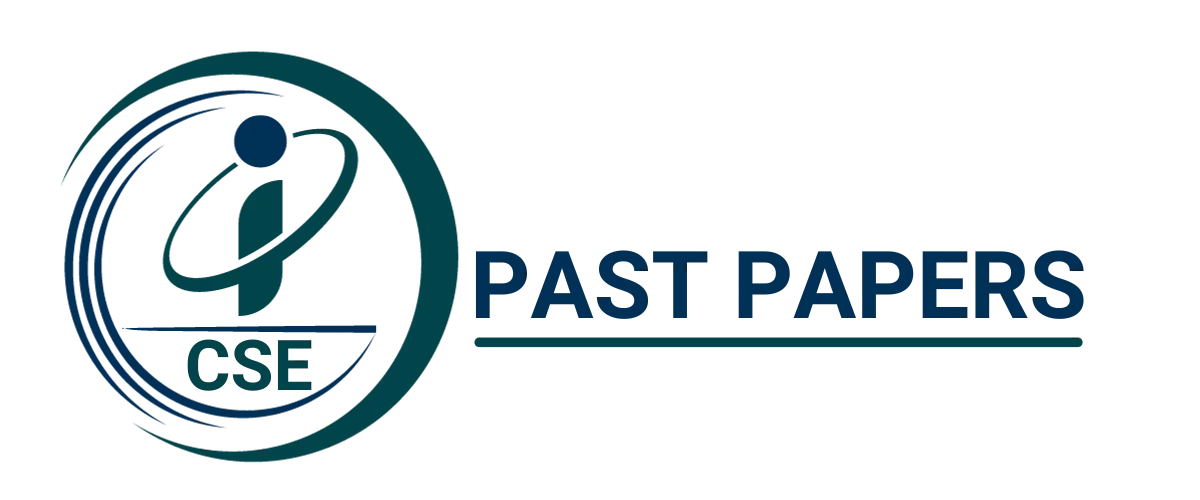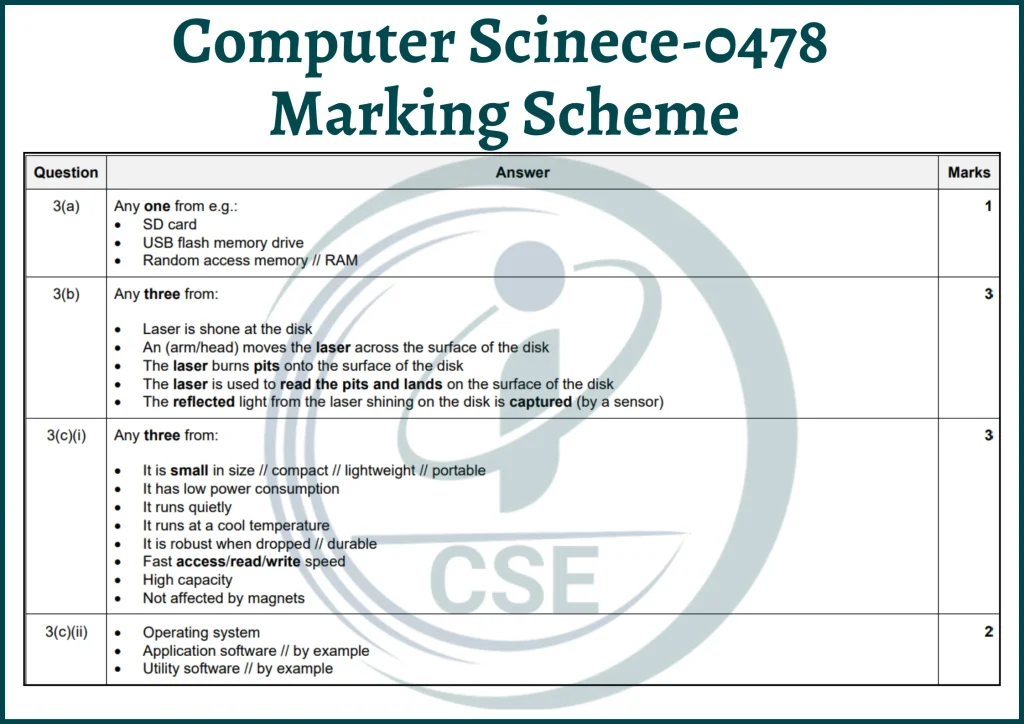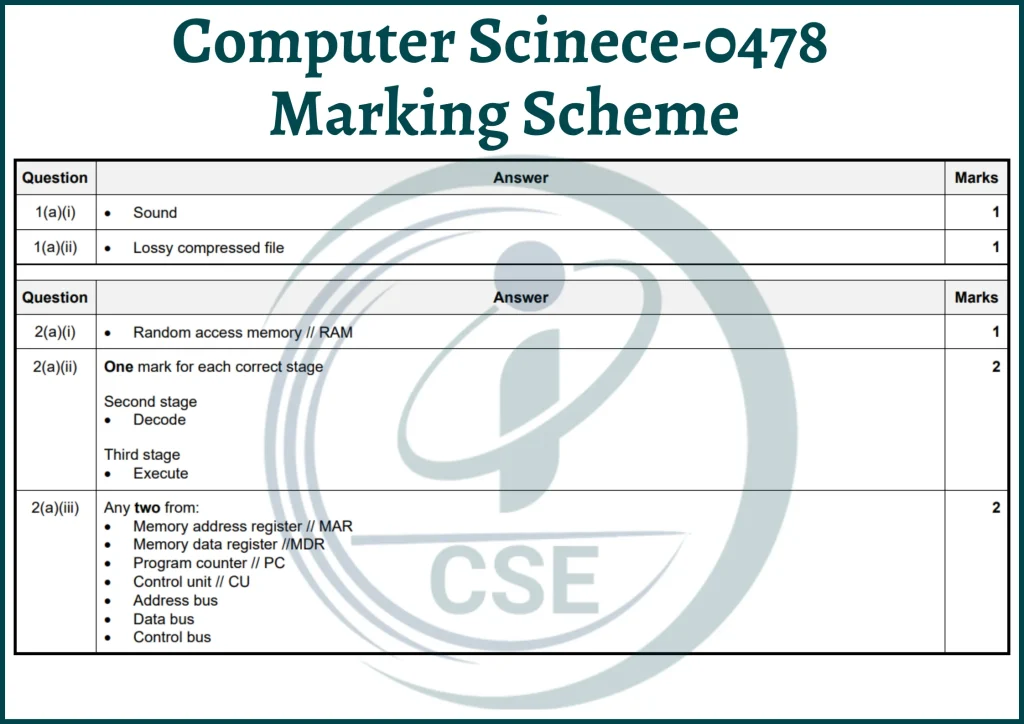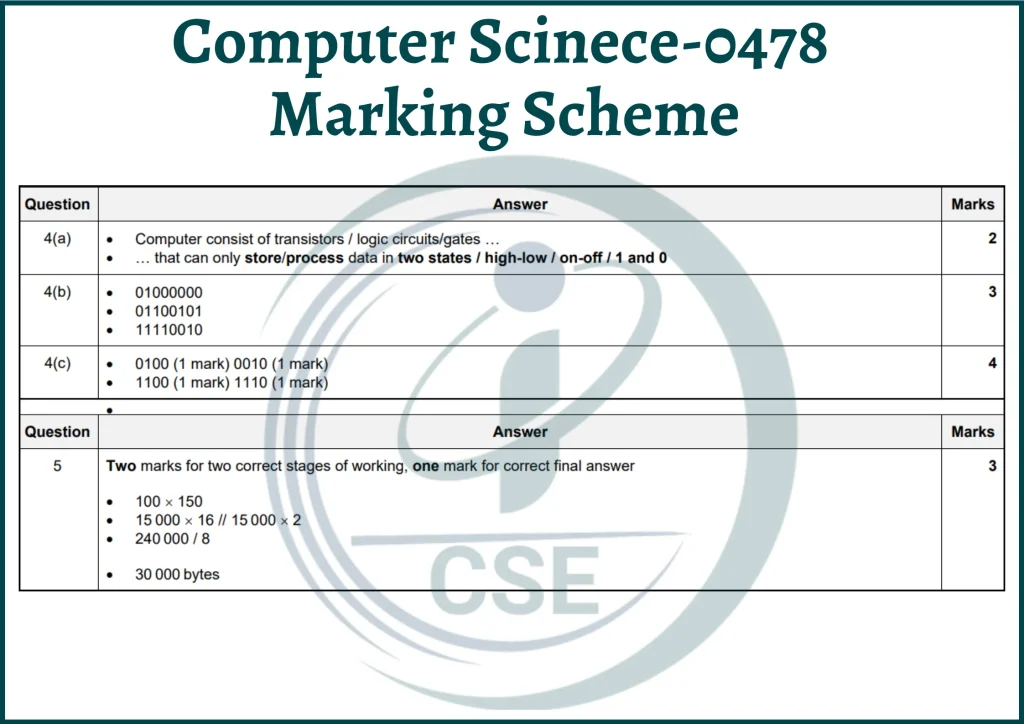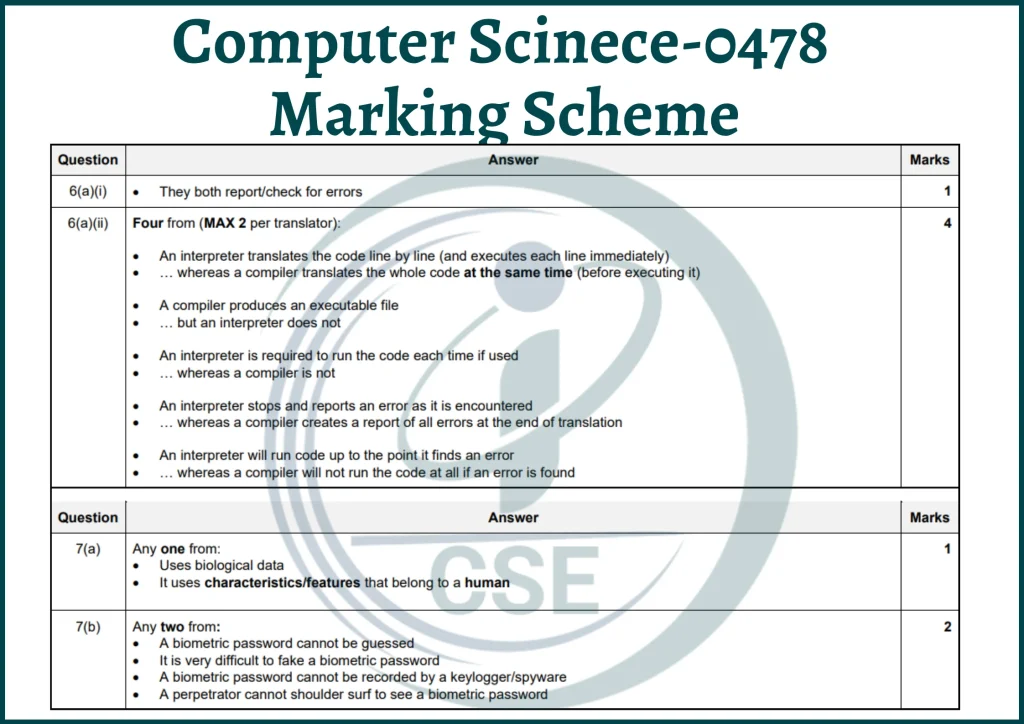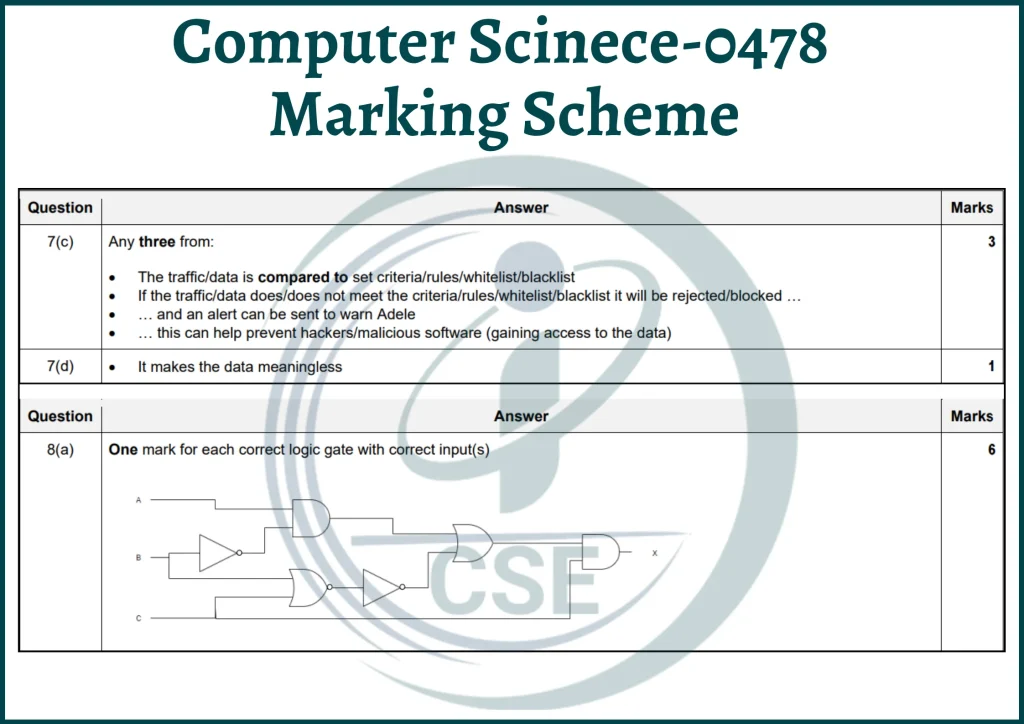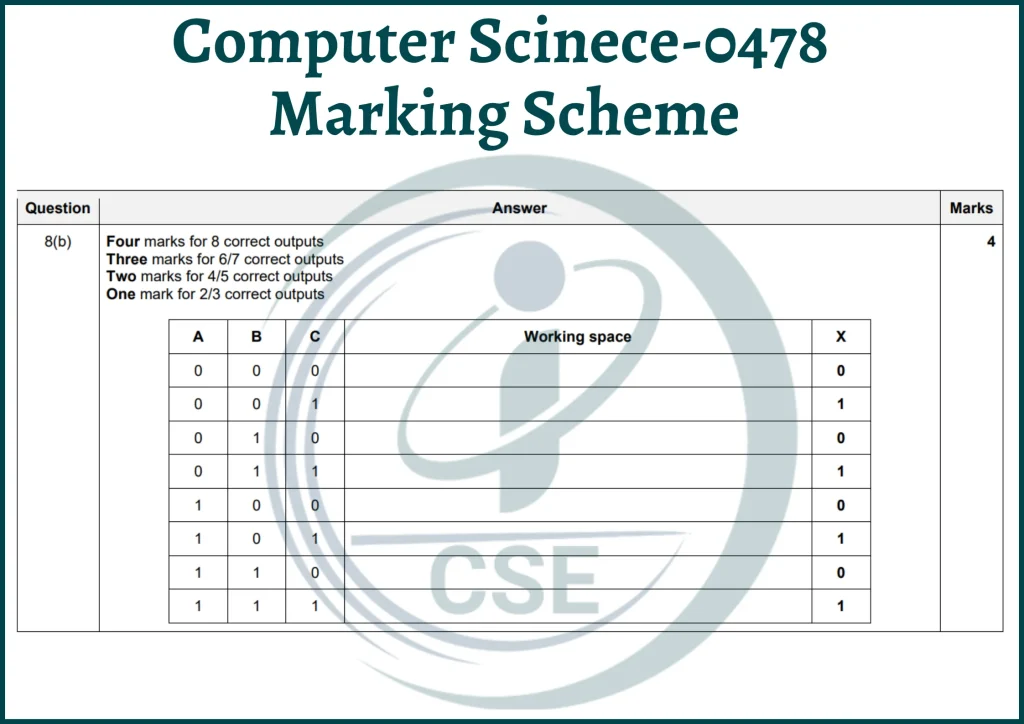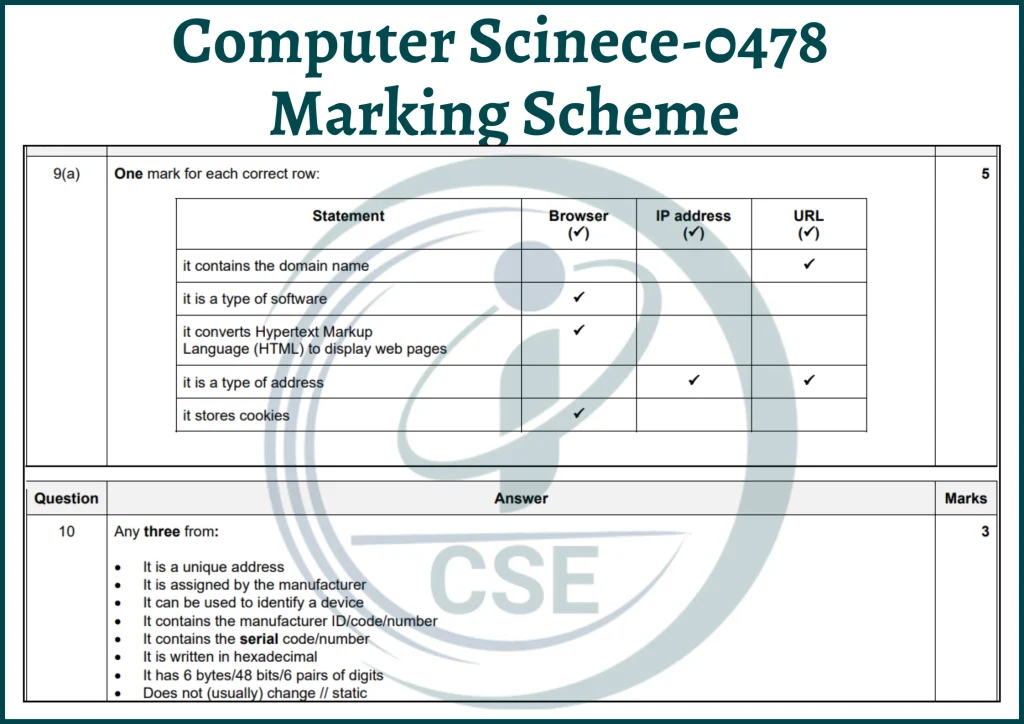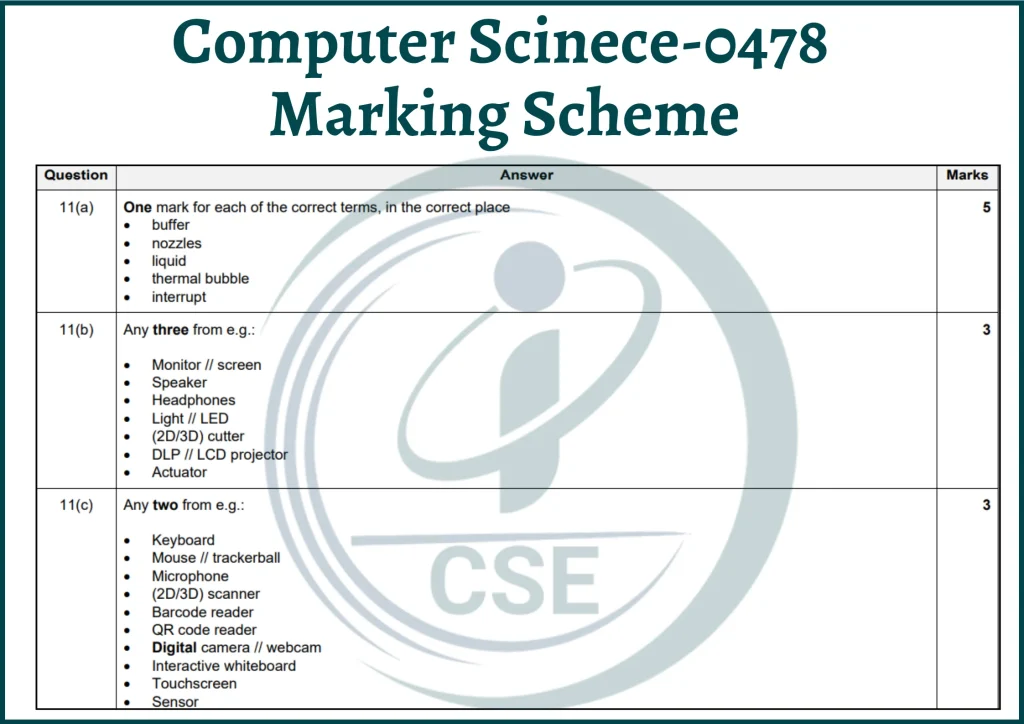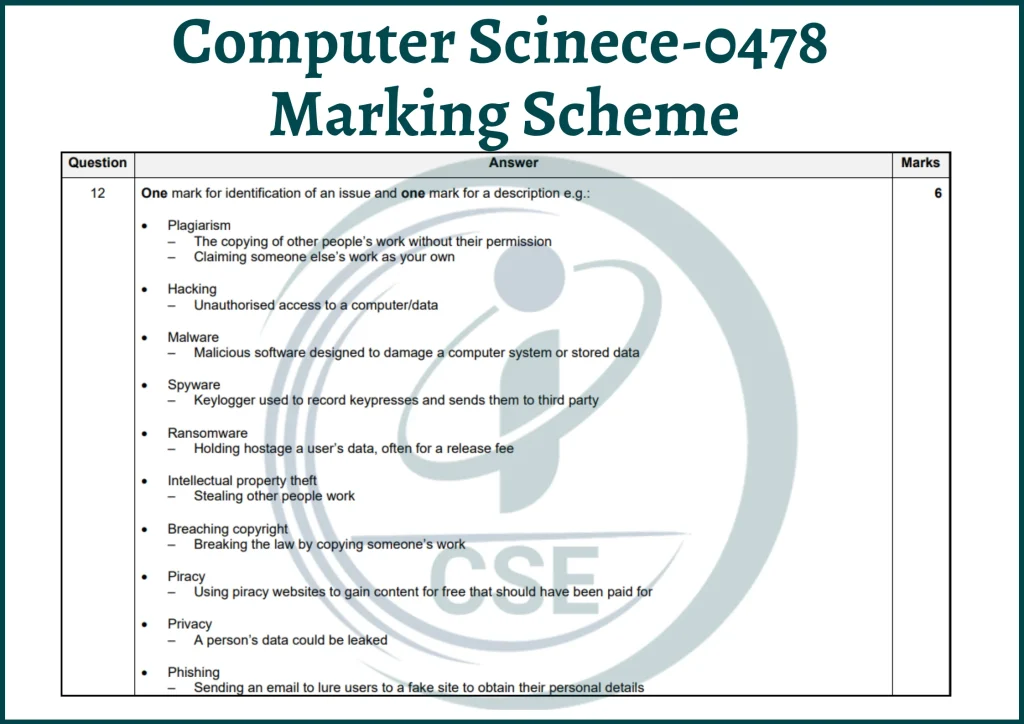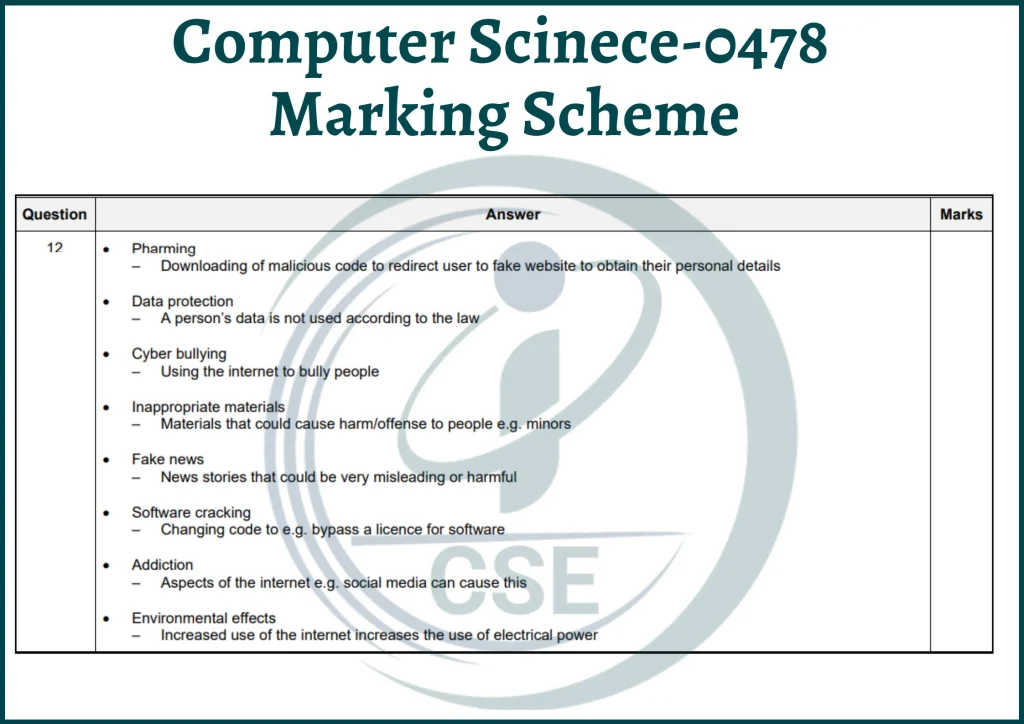Cambridge IGCSE Computer Science-0478 Past papers
Cambridge IGCSE Computer Science-0478 past papers are a useful source for gaining high grades in the final examination of IGCSE. With the help of IGCSE Computer Science-0478 past papers, I got the idea of important topics related to its specific topic. I first prepare the complete syllabus. It also helped me to understand the marking scheme and assessment weightage. The computer science syllabus helped me understand fundamental computing concepts like algorithms and problem-solving. It also helped me to improve my technical skills. I also learned basic programming languages and was able to solve basic programming issues with my critical thinking skills.
Download Cambridge IGCSE Computer Science-0478 Past papers.
Grading threshold Computer Science-0478
The IGCSE Computer Science-0478 grading threshold helped me prepare for the annual examination. The grading threshold is grade A to G. Grade A is the height grade. To achieve a grade A, I gained 46 out of 75 marks. These grades are designed for students to set their targets and work to achieve high grades easily. For this purpose, I will prepare past papers and their predesigned grading threshold. Each component holds a different grading scale. With it, I got the idea of how many marks I should gain to achieve grades A, B, and C in the final examination.
Assessment Overview Computer Science-0478
Its specimen is assessed by two papers to analyze students’ ability to learn basic computing skills. The complete syllabus is divided into these two papers and I prepared each paper according to the given content. Past papers helped me understand which topics are necessary to prepare for paper 1 and which are mandatory for paper B. Qualifying both papers is mandatory to clarify IGCSE. Cambridge designed Computer Science specimens in such a way that every student can easily prepare them and gain high grades. It is not allowed to bring a calculator in the examination hall.
| Paper 1 | |
| 1 hour 45 minutes | |
| 75 marks 50% | |
| Computer Systems | |
| Short-answer and structured questions | |
| Questions will be based on Topics 1–6 of the subject content. | |
| All questions are compulsory. | |
| No calculators are permitted. | |
| Externally assessed |
| Paper 2 | |
| 1 hour 45 minutes | |
| 75 marks 50% | |
| Algorithms, Programming and Logic | |
| Short-answer and structured questions and a scenario-based question | |
| All questions are compulsory. | |
| All questions are compulsory. | |
| No calculators are permitted. | |
| Externally assessed |
Assessment Objective Computer Science-0478
| AO1 |
| Demonstrate knowledge and understanding of the principles and concepts of computer science. |
| AO2 |
| Apply knowledge and understanding of the principles and concepts of computer science to a given context, including the analysis and design of computational or programming problems. |
| AO3 |
| Provide solutions to problems by evaluating computer systems, making reasoned judgments, and presenting conclusions. |
Assessment Objective Weighting Computer Science-0478
The assessment objectives for IGCSE Computer Science-0478 are based on three major objectives: A01, A02 and A03. These objectives are designed to analyze students’ theoretical and practical skills. It also helped me to enhance my problem-solving and programming skills. I also got the chance to improve my technical skills and assemble hardware components of computers.
| Assessment objective | Weighting in IGCSE % | Paper 1 | Paper 2 |
| AO1 | 40 | 60 | 20 |
| AO2 | 40 | 20 | 60 |
| AO3 | 20 | 20 | 20 |
| Total | 100 | 100 | 100 |
Generic Marking Scheme Computer Science-0478
The generic Marking scheme for the IGCSE examination proposed by Cambridge is applied to all subjects. While analyzing the IGCSE past papers, I go through the marking scheme for paper 1 and paper 2. The marking scheme helped me to choose the topics that carry high marks. I also understood how to answer any question in the final examination. The marking scheme also helped me understand the answer length according to the allocated marks for each question. I also understand which type of question I should attempt first and which type of question I should attempt at the end of the paper.
GENERIC MARKING PRINCIPLE 1
Generic Marking principle 1 is based upon a basic standard introduced by Cambridge. According to this principle, Marks must be awarded in line with the following:
- the specific content of the mark scheme or the generic level descriptors for the question
- the specific skills defined in the mark scheme or the generic level descriptors for the question
- the standard of response a candidate requires as exemplified by the standardization scripts.
GENERIC MARKING PRINCIPLE 2
Generic Marking principle 2 for the IGCSE annual examination depends on theoretical questions so students know the pattern in which they should answer the question. Marks awarded are always whole marks (not half marks, or other fractions).
GENERIC MARKING PRINCIPLE 3
Marks must be awarded positively:
- marks are awarded for correct/valid answers, as defined in the mark scheme. However, credit is given for valid answers that go beyond the scope of the syllabus and mark scheme, referring to your Team Leader as appropriate
- marks are awarded when candidates demonstrate what they know and can do.
- Marks are not deducted for errors.
- Marks are not deducted for omissions.
- Answers should only be judged based on spelling, punctuation, and grammar quality when the question specifically assesses these features as indicated by the mark scheme. The meaning, however, should be unambiguous.
GENERIC MARKING PRINCIPLE 4
Rules must be applied consistently, e.g., when candidates have not followed instructions or when applying generic-level descriptors.
GENERIC MARKING PRINCIPLE 5
Marks should be awarded using the full range of marks defined in the mark scheme for the question (however; the use of the full mark range may be limited according to the quality of the candidate responses seen).
GENERIC MARKING PRINCIPLE 6
Marks awarded are based solely on the requirements as defined in the mark scheme. Marks should not be awarded with grade thresholds or grade descriptors in mind.
